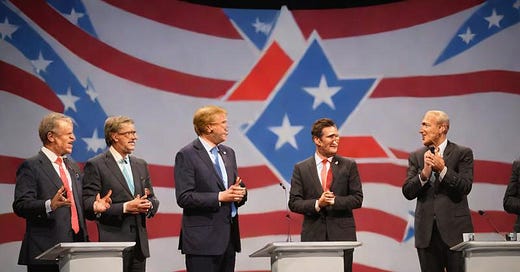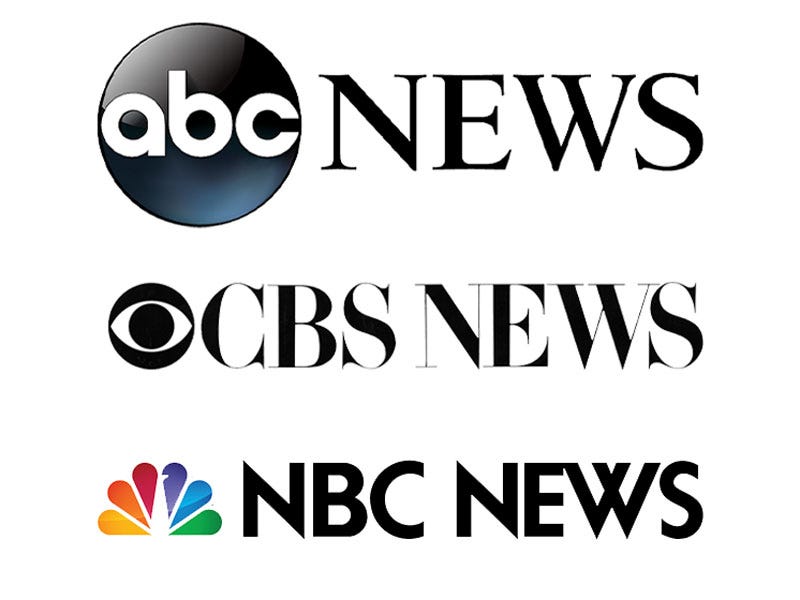Do we really need to see a debate between Donald Trump and Nikki Haley? Or Donald Trump and Joe Biden?
The political landscape has always been dynamic, but recent years have shifted how campaigns are run and won.
The majority of people tuning into primary or general election debates at the presidential level aren’t doing so to hear individuals debate their policy points and platforms in order to gain more knowledge about who they will vote for.
Voters' minds are generally already made up when they watch the debates.
Voters turn the TV on to root for their favorite player in the primary, and they root for their favorite team in the general election.
With the advent of social media and the 24/7 media cycle, there’s not much left to uncover about the candidates' policy positions by the time a debate is held.
Earlier this week, I was asked about my thoughts on Nikki Haley calling out Donald Trump for a debate.
Here’s what Haley said:
Here’s what I told Townhall.com:
Look, what we're seeing from Nikki Haley's campaign is just a bit of political theater. They're trying to stir the pot by calling Trump out for not debating, but let's be real — this is a non-issue they're trying to blow up into something bigger. Trump will be the nominee for the Republican Party; it doesn't make sense from a strategy perspective to give Haley the time of day, much less a debate stage.
I get it from Haley's end. When you're as far behind as she is, you throw whatever you can at the frontrunner and see what sticks. It's politics — make some noise and hope it shakes things up. But in the grand scheme of things, it's just grasping at straws.
Haley's challenge to Trump is less about expecting an actual debate and more about creating a narrative. It's a tactic to gain visibility and possibly unsettle the frontrunner.
However, from Trump's standpoint, engaging in a debate with Haley doesn't align with strategic logic. Given his position, sharing a debate stage would only elevate Haley's campaign, which isn't a smart move for a frontrunner.
This isn't just about Haley or Trump; it's about how campaigns are evolving. The refusal to debate by a frontrunner isn't new, but it's becoming more of a norm in our current political climate.
What about the general election, you ask?
If I’m on Joe Biden’s team, I’m not putting him anywhere near Donald Trump on a debate stage.
Not because I don’t want to see it - I would love to see that debate - but because it doesn’t make any strategic sense to put Biden in a position to embarrass himself even more than he already does.
And, again, what’s the strategic advantage?
The voters know Trump, and they know Biden. All a debate does is give your candidate an opportunity to mess up.
A perfect example of this is when former Virginia Governor Terry McAuliffe was debating then-candidate Glenn Youngkin and said, “I don't think parents should be telling schools what they should teach.”
According to the polling, this statement played a major factor in a voter’s decision on who to vote for in the gubernatorial race in 2021. A race which Youngkin won by less than 2%.
If that debate never happened, there’s a good chance we wouldn’t have a Republican governor in Virginia right now.
The same holds true for a debate on the national stage between Trump and Biden.
The Media
The Big Three networks no longer dominate the news cycle.
Debates still made sense when you had three channels people would watch, and that was the only opportunity for candidates to present themselves to the American public.
That’s not the case in today’s world.
The public is connected to the news cycle 24/7, and there are so many news alternatives that you have to meet the voters where they are; you can’t just hop on the network news and hope someone sees your interview.
The reliance on traditional platforms like debates to showcase positions and policies is waning, giving way to more direct, sometimes unconventional forms of voter engagement: banner ads, social media ads, text messaging, direct mail, streaming ads, social media, streaming services, podcasts, and the list goes on.
Listen, I love debates. I loved watching Donald Trump destroy Hillary Clinton in 2016, and I like the political theater.
As someone deeply entrenched in political strategy, I believe understanding these evolving dynamics is crucial. The playbook is changing, and we must adapt our strategies to stay ahead. While debates have their place, their impact and relevance in future presidential elections might not be as significant as they once were.







